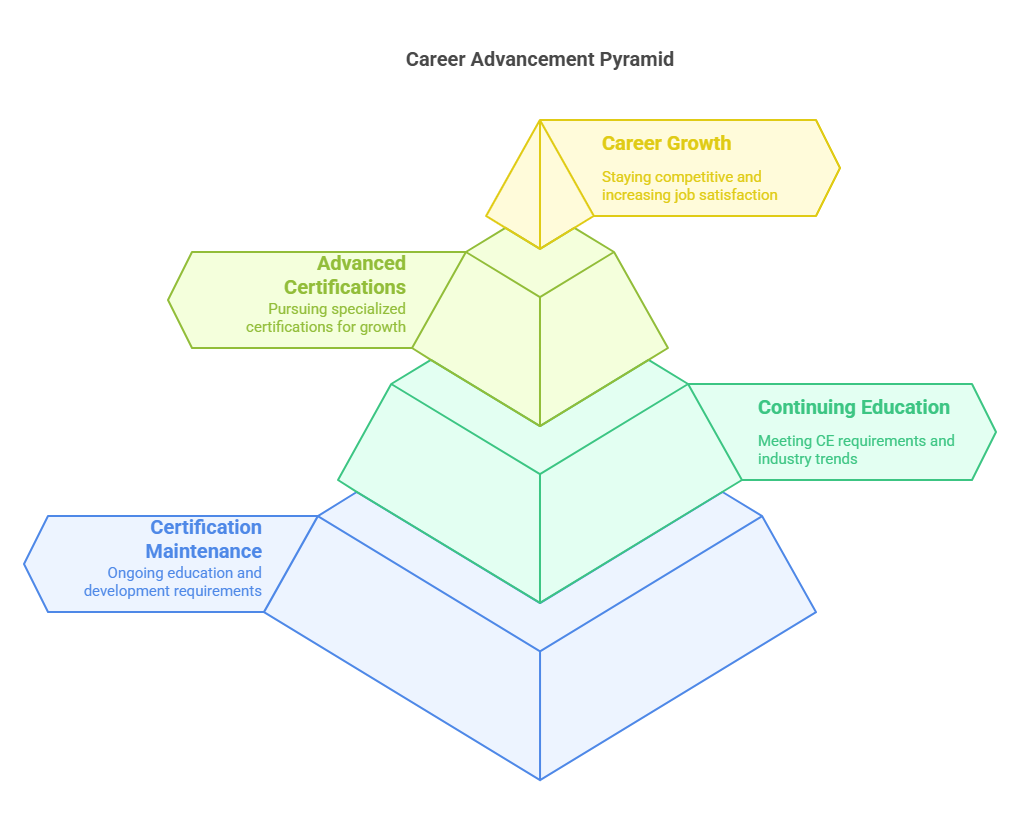Mastering the National Healthcare Association Exam for Career Success
The National Healthcareer Association (NHA) offers a variety of certifications for healthcare professionals, including Certified Medical Administrative Assistant (CMAA), Clinical Medical Assistant (CCMA), and Certified Phlebotomy Technician (CPT). NHA certifications are widely recognized and respected in the healthcare industry, demonstrating a commitment to high standards of patient care and ongoing professional development. Accredited by the National Commission for Certifying Agencies (NCCA), these certifications adhere to stringent guidelines concerning exam design, development, and security. NHA certifications are also recognized by state agencies, including Boards of Medicine, Departments of Public Health, and Boards of Pharmacy, making them a credible qualification for fulfilling licensing requirements. Earning an NHA certification significantly enhances a healthcare professional’s employability and career prospects.

Preparing for the NHA Exam
To successfully prepare for the NHA exam, it is important to understand the exam format, content, and requirements. NHA offers various tools to aid in preparation, including study guides, practice exams, and online courses. These resources are designed to help candidates identify areas of weakness and improve their understanding. Additionally, candidates can utilize data analytics to pinpoint areas of difficulty in their learning process. Whether pursuing medical billing and coding certification or another healthcare credential, developing a well-organized study plan, setting realistic goals, and staying motivated are essential components for success. Seeking support from educators, mentors, or peers can also provide valuable assistance during exam preparation. AMBCI supports candidates through this journey by providing high-quality resources and guidance tailored to individual needs.
Choosing the Right NHA Certification
NHA offers a diverse range of certifications, including Certified Coding Specialist (CCS), Pharmacy Technician (CPhT), and EKG Technician (CET). When choosing the right certification, candidates should consider their career goals, personal interests, and specific job requirements. It is essential to thoroughly research each certification’s prerequisites, exam format, and content to ensure it aligns with one’s professional aspirations. Consulting with educators, mentors, or professionals in the desired field can also provide helpful guidance in making an informed decision. Selecting the appropriate certification can lead to improved job satisfaction, higher earning potential, and greater opportunities for career advancement.
NHA Exam Details and Requirements
The NHA exams are administered through approved testing centers, such as K&G Career Academy, and candidates must meet specific eligibility requirements, including age, education, and relevant experience. The exam format, content, and duration vary based on the certification being pursued. It is important for candidates to familiarize themselves with the specific exam details and requirements before registering. Additionally, candidates are required to submit necessary documentation, such as identification and proof of education, to ensure a smooth registration and testing process.

NHA Exam Experience and Strategies
The NHA exam is designed to assess a candidate's knowledge, skills, and abilities in their chosen field. To perform well, candidates should plan to arrive early, bring all required documents, and be prepared to follow all testing center rules and regulations. Effective time management and careful reading of each question are vital strategies. Candidates can also use techniques such as process of elimination to improve their chances of selecting the correct answers. Staying calm, focused, and confident throughout the exam will also contribute to a successful outcome.
Career Opportunities with NHA Certification
NHA certification can open the door to a wide range of career opportunities. Certified healthcare professionals are in high demand, as employers seek individuals who demonstrate a commitment to quality patient care and continuous professional development. NHA certification can lead to higher job satisfaction, increased wage potential, and career advancement opportunities. Certified professionals are more likely to enjoy job security, as their qualifications make them highly valuable to employers. NHA certification can also pave the way for specialized roles in fields such as medical assisting, pharmacy technology, patient care, and healthcare management.
Maintaining NHA Certification and Advancing Your Career
To maintain NHA certification, professionals must engage in ongoing education and professional development. This includes meeting continuing education (CE) requirements, staying current with industry trends, and adhering to industry standards. Pursuing advanced certifications, such as Certified Coding Specialist (CCS) or Certified Medical Administrative Assistant (CMAA), can further enhance career prospects and lead to new opportunities. Maintaining certification and continuing education are essential for career growth, allowing professionals to stay competitive and increase their job satisfaction and earnings.

6 Lesser-Known Facts About NHA Certification
State and Federal Recognition: NHA certifications are recognized by employers nationwide, establishing their credibility in the healthcare field. AscendBase
Career Center Access: NHA provides a "Career Center" to help certified professionals connect with potential employers and find job opportunities. AscendBase
Roles Beyond Patient Care: NHA certifications can lead to non-clinical roles, such as healthcare management and administrative positions, essential to healthcare facilities.
Continuous Learning Tools: NHA offers online learning resources and tools to help certified professionals stay updated with industry standards and practices. AscendBase
Certification Validity: NHA certifications are valid for two years, after which individuals must complete continuing education (CE) credits to maintain their certification.
Work Experience Flexibility: Certain NHA certifications, like the Clinical Medical Assistant (CCMA), can be obtained without a formal degree, provided the required work experience and training are met.
Frequently Asked Questions (FAQs)
-
NHA stands out due to its wide variety of certifications and its emphasis on making certifications accessible and affordable to healthcare professionals. Other organizations may specialize in specific healthcare fields but NHA offers a comprehensive range of credentials.
-
The length of the NHA exam varies by certification but generally lasts between 90 minutes and 2 hours.
-
Yes, candidates can retake the NHA exam after a specified waiting period, although additional fees may apply depending on the certification.
-
To maintain certification, professionals must complete continuing education (CE) credits and stay up-to-date with industry practices and guidelines.
-
Yes, NHA certifications are widely recognized across the United States, though it’s advisable to check with local regulatory boards for specific state requirements.
As of 2025, NHA has expanded its offerings to include certifications in emerging fields such as telemedicine, healthcare technology, and digital health records. In addition, NHA has partnered with more academic institutions to provide hybrid learning and testing options, making certification even more accessible. These updates reflect the growing demand for healthcare professionals with specialized knowledge in technology-driven areas of healthcare. NHA continues to be a leader in offering certifications that help healthcare professionals advance in their careers and stay competitive in an ever-evolving industry.
